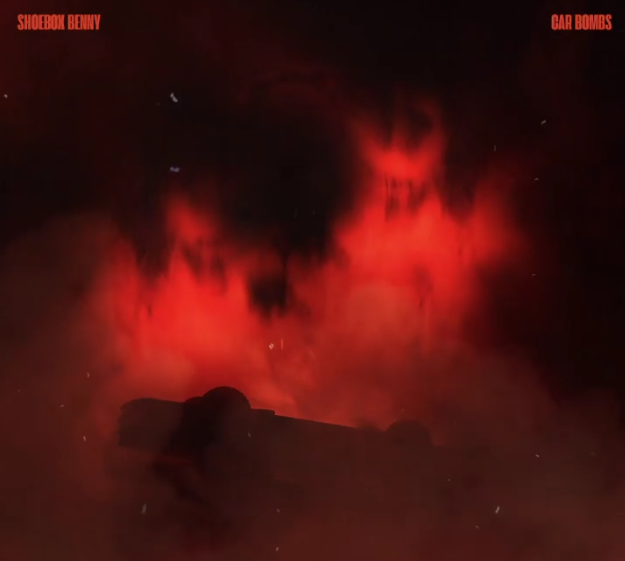KASE, an improvisationalist jazz trio consisting of Jamie Breiwick, John Christiensen and Jordan Lee, and Milwaukee musician, producer and instrumentalist, Klassik collaborated for a showcase that will be featured on B Side Recordings limited edition cassette tape release. Kase and Klassik sat down with us backstage to talk about the cultivation of their unique sound, the lineage of Black American music and even gave us some of their pre-show rituals.
/CW: How did you guys go from your day jobs, to being members of what some are calling an “acid-jazz trio”?
JC: Oh is that what people are calling it? Ha ha!
JL: Umm, I think the common thread with everybody is that we’ve all studied and been doing this our whole lives. I don’t think anyone in this room started beyond single digits right? For me it was like 7-8.
JB: : It was 10 for me.
JC: We’re tremendous music fans, very diverse wide record collections; jazz, blues, classic rock country. Music was just a part of the house growing up.
JB: I remember when almost every house had a piano in it. We had a piano, my parents didn’t even play.
Klassik: Haha! I concur
CW: I know this has been taped and it’s gonna be on B- Side Recordings Cassette Tape, how does it feel to be a part of something so unique? And how does it feel to be a part of a group of musicians who are also so unique?
JL: I like that we’ve been able to figure out how to turn our shows into albums. Like…this is an album from a year ago and tonight could be another album.
JC:I feel really SUPER grateful. Jamie and I were commenting on how we started this out with another DJ four or five years ago.
JB: Yeah we were just playing at a little corner dive bar… and we did that for a few years. Then Jordan entered the group and we’re so grateful to have him, he’s got a lot of like…entrepreneurial and that side of things, which I am terrible at,
JC: Yeah, we said if Jordan wasn’t in the group we would be doing this somewhere else.
JL: Yeah it’s just on a much grander scale, more fitting for this type of music. Cause this is in my family too, my dad was a musician, producer, event productions manager, etc. And like…us having our kids work at our events, that’s how I grew up. For me, this is just what I do, it’s what I did before 88.9, it’s what I’ll continue to do after 88.9. I just can’t stop producing fun things and events.
Klassik: I mean for someone like me who historically takes quite a long time on a particular body of work at one time, this is a nice welcoming change of pace. To be a part of something that is so effortless. To just kind of step in and get done with the performance and the next day you’re in the group chat like ‘uhh..I think we have an album out. Haha! So it’s definitely refreshing and I always like to place myself in different musical scenarios, it keeps you sharp. As a different type of musician, not just a good musician but an ADAPTIVE musician which I think is like, one of the strongest skills that you can have as a musician. Especially when you’re talking about jazz and improv, the ability to adapt and just be in the moment is important. Let the spirit move you and magic can happen.
KASE discusses how improv plays a role in all Black American music, especially jazz. Jordan Lee and John Christensen talk about practicing the art form and the uncertainty that comes with improvisational music.
/CW: How did you guys become an improv jazz group?
JB: We’ve always been, that’s how we started out. John and I were….I guess if you wanna put a term to it genre wise, we’re jazz musicians. And the key element in that type of music is improvisation.
JL: But that’s in every Black American music art form!
JC: Yes!
JL:[Klassik] freestyles his ass off! Great blues guitarists take huge solos and amazing traditional drumming has the whole ‘call and response’ element. Like all of the lineage of this is to be improvised, that’s the lineage of Black music. To say like, “hey what do you have to say? Okay cool, here’s what I have to say back to you.” So that’s all we do, we’re all practicing the art form.
JB: But that also comes from years upon years and decades of studying, transcribing, reading, learning and writing and listening. It’s not just out of the blue. It’s a lifelong pursuit.
JC: I think there’s an added element of ‘walking a tightrope’. It’s like okay this might not work? We’re about to do something and we don’t know how it's gonna be. And there’s nothing preconceived. So I do think that that’s different from other bands. Like some people have a form that they improvise on, we’re literally just like get up and go. When it works, it’s amazing.
/CW: So you have bass, trumpets, turntables, etc. Did you guys intentionally create an intersectional sound with your music? Or did it cultivate into that as you guys started working together?
JC: I think it was intentional. The merging of the acoustic instruments with the turntables and electronics was intentional.
JL: Yeah if my role doesn’t have the ability to bounce off of theirs then it’s just a straight line really. And that's not improv.
/CW: How would you guys describe your sound to someone who’s never heard of KASE?
JC: We use the word ‘soundscapes' a lot. I’ve had people tell us that our music takes them on a journey. Because it's not preconceived, it sort of morphs and changes, through the course of a song even. And so, like a landscape, it’s like looking at a landscape and watching the sun change,













